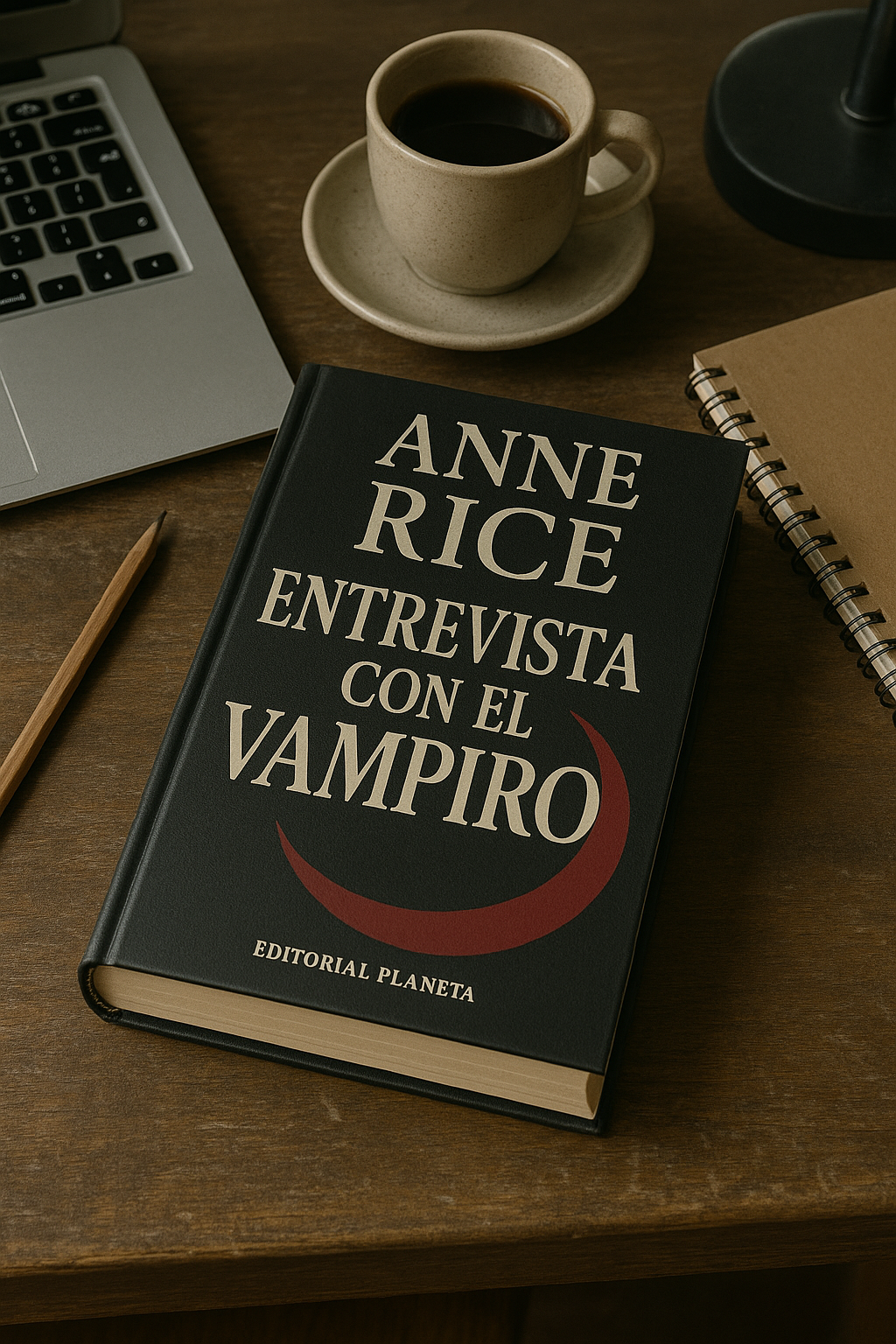
Anne Rice’s Interview with the Vampire is more than just a gothic novel about vampires—it’s a meditation on immortality, morality, and the loneliness of eternal life. Published in 1976, it marked the beginning of The Vampire Chronicles and completely reshaped how modern literature (and cinema) portray these creatures of the night.
Entrevista con el vampiro de Anne Rice es mucho más que una novela gótica sobre vampiros: es una meditación sobre la inmortalidad, la moralidad y la soledad de la vida eterna. Publicada en 1976, marcó el inicio de Las Crónicas Vampíricas y transformó por completo la manera en que la literatura moderna (y el cine) representan a estas criaturas de la noche.*
📖 Story Summary
The book follows Louis de Pointe du Lac, a young man turned into a vampire by the charismatic and ruthless Lestat. Through an interview with a reporter, Louis recounts his journey from 18th-century Louisiana to the streets of New Orleans and beyond. Along the way, he struggles with his conscience, his dependence on Lestat, and his complicated bond with Claudia, a child transformed into a vampire.
El libro sigue a Louis de Pointe du Lac, un joven convertido en vampiro por el carismático y despiadado Lestat. A través de una entrevista con un reportero, Louis relata su recorrido desde la Luisiana del siglo XVIII hasta las calles de Nueva Orleans y más allá. En el camino, lucha con su conciencia, su dependencia de Lestat y su vínculo complicado con Claudia, una niña transformada en vampiro.
🌙 Themes and Impressions
What struck me most while reading is the way Rice humanizes the vampire experience. This isn’t about mindless monsters but about beings wrestling with the meaning of their existence. Louis, with his guilt and moral struggle, becomes the lens through which we question humanity itself.
Lo que más me impactó al leer fue la manera en que Rice humaniza la experiencia vampírica. No se trata de monstruos sin mente, sino de seres que luchan con el significado de su existencia. Louis, con su culpa y lucha moral, se convierte en el lente a través del cual cuestionamos a la humanidad misma.
The lush and poetic prose paints New Orleans with haunting beauty, turning the city into more than just a backdrop—it’s practically a character in itself. Reading it feels like stepping into a decadent, candlelit room, filled with secrets and eternal despair.
La prosa exuberante y poética retrata Nueva Orleans con una belleza inquietante, convirtiendo a la ciudad en algo más que un escenario: prácticamente en un personaje en sí mismo. Leerlo se siente como entrar en un salón decadente iluminado por velas, lleno de secretos y desesperanza eterna.
🖤 Final Thoughts
Interview with the Vampire is a must-read for anyone interested in gothic fiction, philosophical questions about life and death, or simply beautifully written prose. It’s haunting, lyrical, and leaves you questioning where the line between good and evil truly lies.
Entrevista con el vampiro es una lectura imprescindible para quienes se interesan en la ficción gótica, las preguntas filosóficas sobre la vida y la muerte, o simplemente la prosa bellamente escrita. Es inquietante, lírica y te deja cuestionando dónde se encuentra realmente la línea entre el bien y el mal.
Whether you’re revisiting it or reading it for the first time, this novel remains a cornerstone of vampire literature and continues to influence the genre decades after its release.
Ya sea que lo releas o lo leas por primera vez, esta novela sigue siendo una piedra angular de la literatura vampírica y continúa influyendo en el género décadas después de su publicación.
What about you? Have you read Anne Rice’s work, or are you just starting with The Vampire Chronicles?
¿Y tú? ¿Has leído la obra de Anne Rice o apenas estás comenzando con Las Crónicas Vampíricas?